Introduction
Why Do Pigs Root: The behavior of rooting in pigs is a fascinating and essential aspect of their natural instincts and daily lives. Pigs are known for their unique ability to use their snouts to root around in the ground, often stirring up the soil and creating a distinctive pattern of holes and furrows. This behavior, although seemingly simple, serves a multitude of purposes that are deeply ingrained in their evolutionary history and survival strategies.
One of the primary reasons why pigs root is their instinctual drive to forage for food. Pigs have an excellent sense of smell, and by rooting, they can unearth hidden treasures beneath the surface, such as roots, tubers, insects, and small rodents. This foraging behavior not only fulfills their nutritional needs but also allows them to explore and utilize a variety of food sources, making them highly adaptable animals in different environments.
Rooting also has a social dimension among pigs. When kept in groups, they often engage in communal rooting activities. This serves as a form of communication and bonding among herd members. Pigs may take turns rooting in the same area, share their findings, or simply enjoy each other’s company while engaging in this shared behavior.
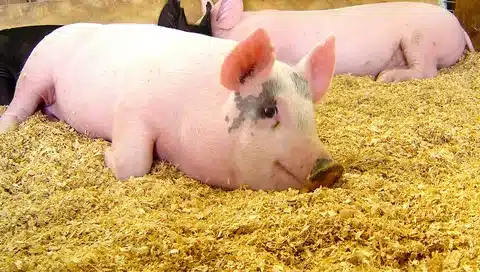
Why do pigs root in the soil?
They root for several reasons: to find. tubers and grubs in the soil, to cool off, too. communicate, or for simple enjoyment!
Foraging Instinct: Pigs have an innate foraging instinct deeply rooted in their evolutionary history. They are natural omnivores with a keen sense of smell. Rooting in the soil allows them to search for food beneath the surface, seeking out a wide array of edible treasures like roots, tubers, insects, and even small rodents. This behavior is essential for their nutritional needs, as it provides access to a diverse range of nutrients.
Environmental Enrichment: Rooting also serves as a form of environmental enrichment for pigs. In confined or less stimulating environments, pigs can become bored and stressed. Rooting allows them to engage in a mentally and physically stimulating activity, reducing boredom and improving their overall well-being.
Social Interaction: Pigs are social animals, and rooting can be a group activity. When kept together, they often root in the same area, taking turns or even playfully engaging with each other. This behavior fosters social bonds and communication within the group.
Territorial Marking: Rooting isn’t just about food; it can also serve as a means of territorial marking. Pigs may leave scent marks in the soil as they root, conveying information about their presence and activities to other pigs in the area.
Is rooting good for pigs?
Not letting a pig root is like telling a dog not to sniff or a cat not to groom itself. It’s what they were born to do, so it is important that you give them the outlet to do so.
Physical Health: Rooting is undeniably beneficial for pigs in terms of physical health. It allows them to engage in natural foraging behavior, which provides essential nutrients and dietary enrichment. This, in turn, contributes to their overall well-being and growth, particularly for growing pigs and pregnant sows with heightened nutritional demands.
Mental Stimulation: Rooting also provides mental stimulation for pigs. In environments where they may be confined or have limited access to a variety of activities, rooting helps alleviate boredom and reduces stress. Pigs that engage in natural behaviors like rooting are often happier and less prone to exhibiting negative behaviors associated with stress or frustration.
Social Interaction: For pigs in group settings, rooting can enhance social interaction. Group rooting activities foster bonding and communication among herd members. Pigs often take turns or playfully root together, reinforcing social bonds within the group.
Environmental Impact: Rooting can have positive environmental effects as well. Pigs, through their digging and rooting, may help aerate and mix the soil, potentially benefiting soil health and promoting plant growth in certain ecosystems.
Why does my pig root my hand?
Pigs also root in soft dirt in order to eat the dirt if they need more minerals. If your piggy is rooting your leg or arms while you hold her, it is an affectionate behavior. Often this is accompanied by grunting and suckling noises. She may also be searching for food, or just exploring.
Natural Instincts: When your pig roots your hand, it is likely driven by its natural instincts. Pigs are foragers by nature, and their snouts are their primary tool for exploring and investigating their surroundings. When they root your hand, they might be trying to forage for food or simply exploring your scent, as pigs have an excellent sense of smell.
Curiosity and Exploration: Pigs are curious animals, and they use their snouts to explore objects in their environment, including your hand. They are tactile creatures and often use their snouts to touch and investigate objects, much like we would use our hands.
Social Interaction: Rooting your hand can also be a form of social interaction. Pigs are social animals, and they communicate with each other through physical contact, including nuzzling and rooting. Rooting your hand could be their way of interacting with you, especially if they view you as a companion or part of their social group.
Attention and Affection: In some cases, if your pig is comfortable with you and enjoys your company, rooting your hand might be a sign of affection or a way of seeking attention. Pigs can form strong bonds with their human caregivers, and rooting your hand could be their way of expressing their fondness for you.
Why is my pig rooting so much?
Rooting is a natural behavior for pigs where the pig uses his snout to push or nudge into something repeatedly. Pigs root in different ways for different reasons: for comfort, to communicate, to cool off, or to search for food.
Natural Instincts: One primary reason your pig may be rooting excessively is due to their innate foraging instinct. Pigs are natural foragers and use their snouts to search for food beneath the surface. When they root excessively, they may be trying to satisfy their foraging drive, even if they have a consistent source of food.
Boredom and Stress: Excessive rooting can also be a sign of boredom or stress. Pigs are intelligent animals that require mental and physical stimulation. When they’re confined to a small or unstimulating environment, they may resort to excessive rooting as a way to alleviate their boredom or cope with stress.
Lack of Environmental Enrichment: Pigs need environmental enrichment to stay mentally and physically healthy. If their living space lacks interesting objects or opportunities for play and exploration, they may resort to rooting as a way to fill the void.
Health Issues: Sometimes, excessive rooting can indicate an underlying health issue, such as dental problems or nutritional deficiencies. If your pig is not receiving a balanced diet or is experiencing discomfort, they may root excessively as a response to these issues.
Social Interaction: Pigs are social animals, and they may root excessively if they’re seeking social interaction. If they are isolated or do not have companions, they may engage in this behavior as a way to express their desire for company.
How often do pigs root?
Rooting behavior: Swine have an excellent sense of smell. They often find food underground and use the hardened, front edge of their snout to dig, a behavior known as root- ing. A swine will root about 60 times every 24 hours.
Frequency Varies: The frequency of rooting in pigs can vary depending on several factors, including their age, environment, and individual temperament. Pigs are naturally inclined to root, but the extent and regularity of this behavior can differ from one pig to another.
Constant in the Wild: In the wild or in more natural settings, pigs root as part of their daily routine to find food. Wild boars, for example, may root several hours a day to uncover roots, tubers, insects, and other edibles. In these environments, rooting is a regular and essential behavior.
Reduced in Captivity: Pigs kept in captivity, such as on farms or as pets, may not root as frequently or vigorously as their wild counterparts. This is often because they have access to consistent food sources provided by their caregivers. However, even in captivity, pigs will still engage in rooting behavior, particularly if they lack environmental enrichment or if they are bored or stressed.
Age Matters: The age of the pig can also influence the frequency of rooting. Piglets and young pigs tend to root more often as they are highly curious and energetic. As pigs mature, they may root less frequently but will still engage in this behavior regularly.
Environmental Factors: Environmental factors play a significant role. Pigs in more barren or confined environments may root more often due to a lack of stimulation, while those in enriched environments may root less frequently.
Do all pigs root?
It’s bafflingly common. All other breeds of pigs root, so unless you have a Kune pedigree in-hand there is no way to know what kind of behavior you can expect.
Natural Instinct: Rooting is a natural instinct for pigs, deeply ingrained in their biology as foraging animals. Therefore, it’s safe to say that the majority of pigs will engage in rooting behavior at some point in their lives, especially when they have the opportunity to do so.
Variation Among Breeds: However, it’s essential to note that there can be variations in rooting behavior among different pig breeds. Some breeds may have a stronger innate drive to root than others, and individual pigs within a breed can also exhibit varying degrees of rooting behavior.
Environmental Influence: The extent to which pigs root can also be influenced by their environment. Pigs kept in more confined or barren environments may not have as many opportunities to root, while those in more enriched environments with access to soil, vegetation, and objects to root around may do so more frequently.
Age-Related Differences: Rooting behavior can change with age. Piglets and young pigs tend to be more active rooters as they are curious and energetic, whereas older pigs may reduce their rooting activity but will still engage in it periodically.
What do pigs eat when they root?
In nature, pigs root around and eat a variety of things – vegetables, fruits, insects, worms, mushrooms, eggs, and occasionally small mammals. They are opportunistic in their eating, so they will consume what is available to them at the moment.
Varied Diet: When pigs root, they are foraging for a diverse range of food items found in the soil and undergrowth. Their diet when rooting can include:
Roots and Tubers: Pigs are skilled at digging up and consuming underground parts of plants, such as roots and tubers. These are rich in carbohydrates and nutrients.
Insects and Worms: Pigs are opportunistic omnivores, and they eagerly consume insects, worms, and other small invertebrates they unearth while rooting. This protein-rich food source complements their diet.
Plants and Vegetation: Pigs may eat various plants and vegetation they find while rooting. This can include grasses, herbs, and other edible plant materials. While they prefer fresh vegetation, they are known to eat some woody plants as well.
Soil Minerals: Pigs may ingest small amounts of soil while rooting, which can provide essential minerals. This behavior is known as geophagy and is common in many animals.
Small Rodents and Amphibians: On occasion, pigs may catch and consume small rodents, amphibians, or even reptiles they encounter while rooting.
What pigs root the most?
When pigs forage, they use their noses to dig the earth which is known as rooting. While all pigs have this ability, some breeds such as Berkshire, Tamworth, Mulefoot and Choctaw, excel at foraging.
Breed Variations: The frequency and intensity of rooting behavior in pigs can vary among different pig breeds. While all pigs have an innate instinct to root, some breeds exhibit more pronounced rooting behavior than others. Heritage or traditional breeds often display a strong rooting tendency due to their closer genetic ties to wild boars, which were prolific rooters.
Size Matters: Larger pig breeds tend to root more vigorously than smaller ones. Their size and strength enable them to dig more efficiently, which can result in more intense rooting behavior. Breeds like the Large Black, Gloucestershire Old Spot, or Tamworth, which are larger and more robust, are known for their active rooting.
Individual Variability: Within any breed, there can be considerable individual variability in rooting behavior. Some pigs may have a particularly strong inclination to root, while others may engage in the behavior less frequently or with less intensity. This variation can be influenced by factors such as age, temperament, and the pig’s specific upbringing and environment.
Environmental Conditions: The rooting behavior of pigs is also influenced by their living conditions. Pigs in barren or confined environments may root more frequently out of boredom or frustration, while those in enriched environments with access to soil and objects to root around may do so less often.
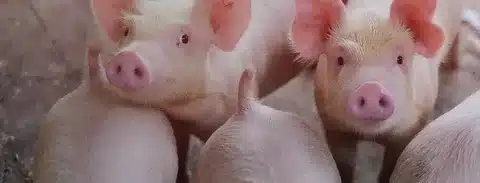
Conclusion
Pigs root primarily for natural and practical reasons. Rooting is an instinctual behavior rooted in their biology, helping them search for food, regulate body temperature, and engage in environmental exploration. While it can pose challenges in certain contexts, understanding and managing rooting behaviors is essential for responsible pig husbandry and ensuring the welfare of these intelligent animals.
pigs root for various reasons deeply ingrained in their natural behavior and instincts. Rooting allows them to forage for food, both below and above the ground, satisfying their keen sense of smell and hunger. Additionally, it serves as a social activity among pigs, promoting bonding and communication within a group. Rooting also provides environmental enrichment, combating boredom and stress in confined spaces, and contributes to territorial marking by leaving scent traces in the soil. Overall, rooting is a multifaceted behavior that plays a significant role in the physical and mental well-being of pigs.
The act of rooting in pigs is a complex behavior driven by a combination of natural instincts and practical needs. Pigs root primarily to forage for food, meet their nutritional requirements, and access hidden nutrients in the soil. This behavior also serves social purposes, fostering communication and bonding among group-living pigs. Additionally, rooting provides mental and physical stimulation, reducing boredom and stress in confined environments. It is deeply rooted in their evolutionary history as wild animals and is a means of releasing pent-up energy. In pregnant sows, rooting can be associated with nest-building for the comfort and security of piglets. Overall, rooting in pigs is a multifunctional behavior that contributes to their well-being and survival.

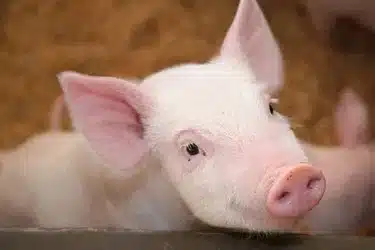
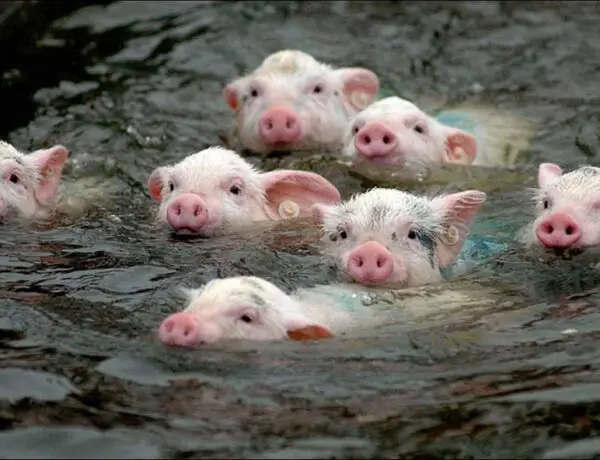
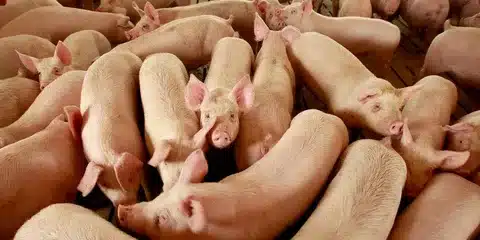
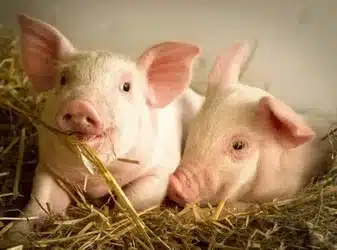
No Comments